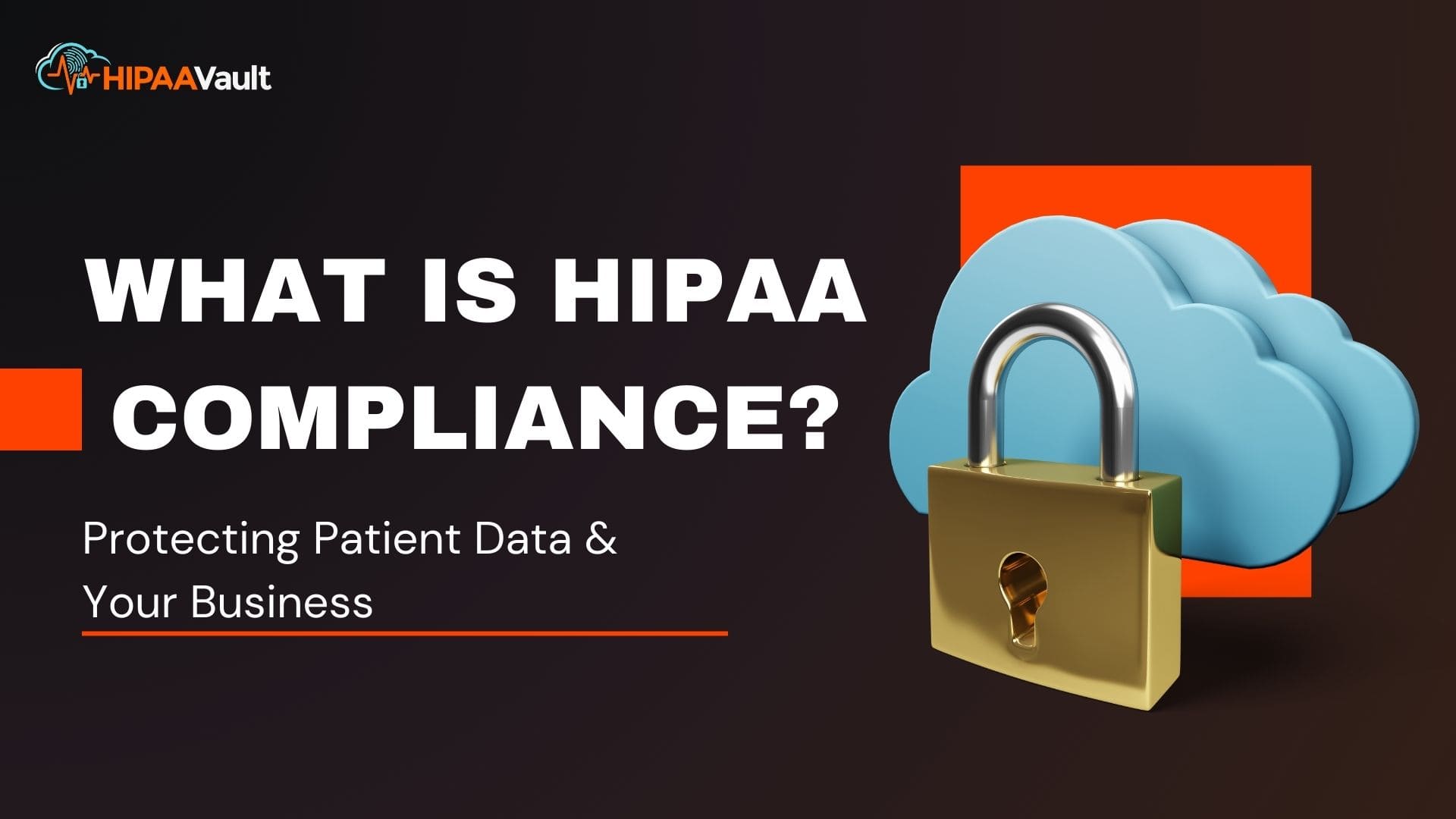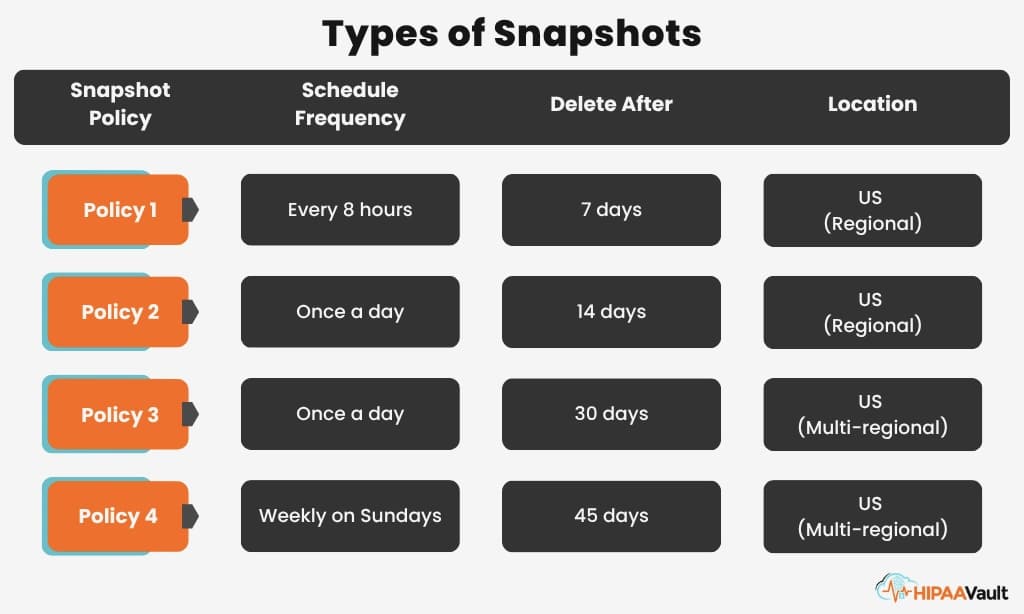Stay Compliant, Stay Secure: Partnering with Experts You Can Trust
Why HIPAA Compliance Matters
If your business works with protected health information (PHI), you’ve probably heard the term HIPAA compliance.
But what is HIPAA compliance, and why does it matter so much?
In today’s digital world, healthcare organizations and their business partners face constant risks of cyberattacks, accidental data exposure, and costly fines if patient data isn’t handled properly. That’s where HIPAA compliance comes in.
HIPAA compliance ensures that sensitive health data stays private, secure, and only accessible to the right people.
It’s not just about avoiding penalties—it’s about building trust with patients and partners.
👉 Looking for HIPAA-compliant cloud hosting? Check out HIPAAVault’s secure solutions.
Don’t Trust Patient Data to Standard Web Hosting
Protect your practice from breaches and fines. Our hosting includes intrusion detection, firewalls, and audit logs.
Learn MoreWhat is HIPAA? Understanding the Basics
HIPAA stands for the Health Insurance Portability and Accountability Act, a U.S. law passed in 1996.
The law was designed to protect sensitive patient information while making it easier for people to maintain health coverage when changing jobs.
At its core, HIPAA ensures that organizations handling PHI—like doctors, hospitals, insurance providers, and even IT companies—follow strict standards for privacy and security.
There are two main groups who must comply:
- Covered Entities: healthcare providers, insurers, and clearinghouses.
- Business Associates: vendors who handle PHI on behalf of covered entities (think billing companies, cloud providers, and IT consultants).
If your business touches PHI in any way, HIPAA likely applies.
📖 Learn more directly from the U.S. Department of Health & Human Services.
The Core Rules of HIPAA Compliance
To truly understand what HIPAA compliance is, you need to know its major rules. These rules guide how organizations must manage patient data:
1. The HIPAA Privacy Rule
This rule protects patients’ rights by controlling how PHI is used and disclosed. It gives patients more control over their health information.
2. The HIPAA Security Rule
The Security Rule outlines the administrative, physical, and technical safeguards required to protect electronic PHI (ePHI).
That means secure servers, strong authentication, and proper access controls.
3. The Breach Notification Rule
If PHI is ever exposed in a breach, organizations must notify affected individuals, regulators, and sometimes the media.
Compliance with these rules requires ongoing effort. That’s why many businesses partner with trusted providers like HIPAAVault’s managed services to reduce risks and stay on top of requirements.
Why HIPAA Compliance is Essential
Some businesses see HIPAA as just another regulation. But ignoring it can be extremely costly.
- Legal consequences: Penalties for HIPAA violations can reach millions of dollars per year.
- Reputation damage: Patients lose trust if their data is mishandled.
- Operational disruptions: Breaches often lead to downtime, audits, and lawsuits.
On the other hand, being compliant has big benefits:
- Builds patient and client trust.
- Positions your business as a secure, reliable partner.
- Gives you a competitive edge in healthcare-related industries.
👉 Don’t risk fines or data loss. Talk to our compliance experts today.
Steps to Achieve HIPAA Compliance
Achieving HIPAA compliance isn’t a one-time project—it’s an ongoing process. Here are the key steps:
1. Conduct a Risk Assessment
Identify potential vulnerabilities in your systems, processes, and physical environment.
2. Create Policies and Procedures
Develop written policies that outline how PHI is accessed, stored, shared, and protected.
3. Train Your Staff
Employees are often the weakest link. Regular training ensures they know how to handle PHI securely.
4. Implement Technical Safeguards
This includes secure servers, firewalls, encryption, and backups. Services like HIPAA-compliant cloud hosting and secure email can help.
5. Continuous Monitoring and Audits
Compliance isn’t static—systems and threats change. Regular audits and monitoring are essential.
With HIPAAVault, you get all-in-one support: HIPAA cloud hosting, secure email, managed backups, and compliance guidance. That means less stress for you and more protection for your patients’ data.
Common Challenges in HIPAA Compliance
Even with the right intentions, many organizations struggle with compliance. Common challenges include:
- Misconfigured cloud services.
- Lack of proper employee training.
- Outdated technology or software.
👉 With HIPAAVault’s managed HIPAA hosting, you don’t have to worry—we handle the technical details so you can focus on your business.
FAQs about HIPAA Compliance
Stay Protected with HIPAA Compliance
So, what is HIPAA compliance? It’s the framework that keeps patient data safe, ensures trust, and protects businesses from legal and financial risks.
By understanding the rules, following best practices, and partnering with experts like HIPAAVault, your organization can stay compliant with confidence.
👉 Ready to secure your PHI the right way? Get started with HIPAA Vault today.








